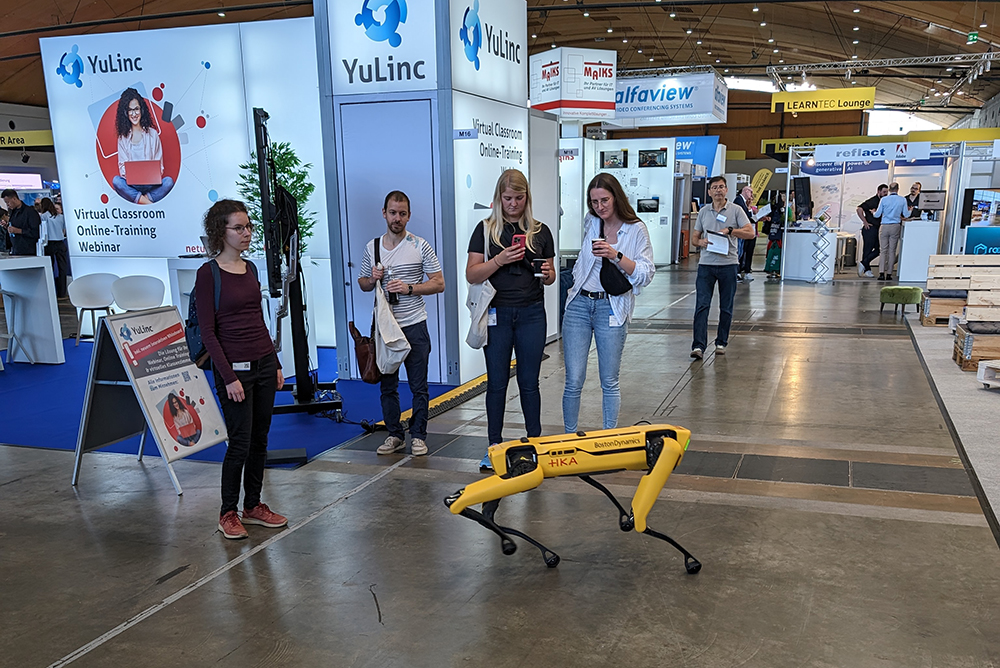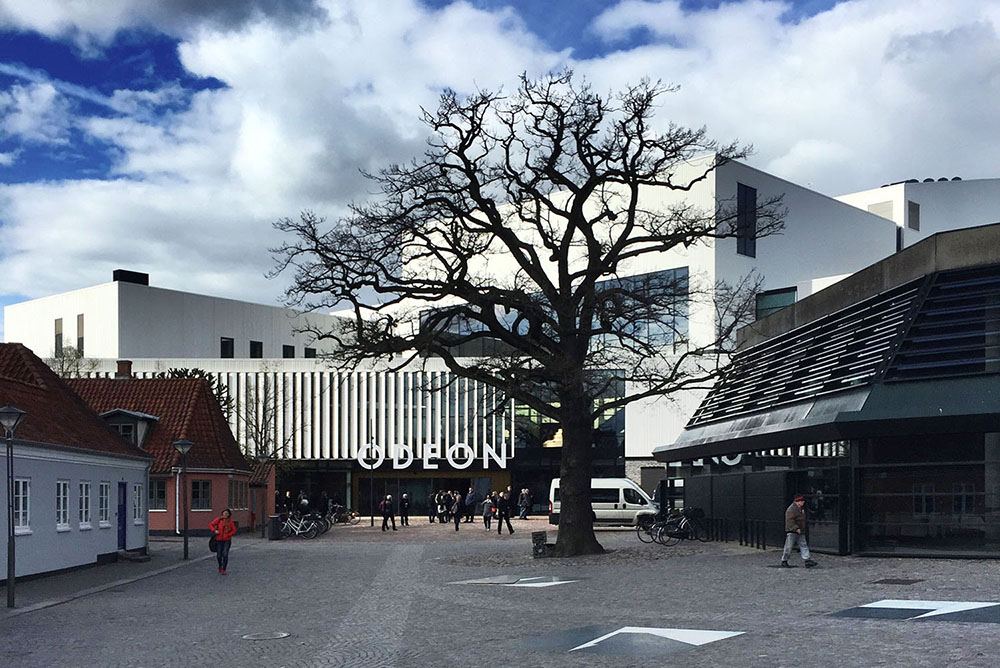According to Hans Jørgen Wiberg, the founder of the app for blind and visually impaired people, Be My Eyes plans to make video data from conversations between blind users and sighted volunteers available for training AI models. This was revealed in an email he sent to all users. The initiative takes place under a strict privacy policy that gives users the option to opt out of data sharing. Photos and their AI descriptions are not used for AI training in order to avoid perpetuating existing prejudices. According to Wiberg, AI models should reflect the actual experiences and abilities of blind people. Bryan Bashin, Vice Chairman of Be My Eyes, emphasizes that blind testers have improved the OpenAI models, which for him proves how important their participation is. Be My Eyes caused a sensation in 2023 with the new Be My AI feature. Prof. Dr. Oliver Bendel wrote the first paper on this topic in November 2023, submitted it in December 2023, and presented it at the AAAI Spring Symposia at Stanford University in March 2024 (Image: DALL-E 3).
Robot Dog Neo Interferes With IoT Devices
According to a report by 404 Media on 22 July 2024, the Department of Homeland Security (DHS) has acquired and modified a dog-like robot called NEO. This robot, equipped with an antenna array, can overload home networks to disable Internet of Things (IoT) devices during law enforcement operations. Benjamine Huffman, director of the Federal Law Enforcement Training Centers (FLETC), revealed the details at the 2024 Border Security Expo. NEO, a modified version of Ghost Robotics’ Vision 60 quadruped unmanned ground vehicle (Q-UGV), helps disable potentially dangerous smart home devices that could be used as booby traps. This development follows an incident in 2021 in which a suspect used a doorbell camera to spy on FBI agents and shot at them, killing two agents. The DHS has also created the ‘FLETC Smart House’ to train officers on how to deal with IoT devices that could be used against them. Robotic pets are becoming increasingly popular with homeland security agencies and police forces. Boston Dynamics’ Spot is used on patrols in New York City and Germany.
Tinder’s AI Photo Selector
Tinder has officially launched its “Photo Selector” feature, which uses AI to help users choose the best photos for their dating profiles. This was reported by TechCrunch in the article “Tinder’s AI Photo Selector automatically picks the best photos for your dating profile” by Lauren Forristal. The feature, now available to all users in the U.S. and set to roll out internationally later this summer, leverages facial detection technology. Users upload a selfie, and the AI creates a unique facial geometry to identify their face and select photos from their camera roll. The feature curates a collection of 10 selfies it believes will perform well based on Tinder’s insights on good profile images, focusing on aspects like lighting and composition. Tinder’s AI is trained on a diverse dataset to ensure inclusivity and accuracy, aligning with the company’s Diversity, Equity, and Inclusion (DEI) standards. It also filters out photos that violate guidelines, such as nudes. The goal is to save users time and reduce uncertainty when choosing profile pictures. A recent Tinder survey revealed that 68% of participants found an AI photo selection feature helpful, and 52% had trouble selecting profile images. The TechCrunch article was published on 17 July 2024 and is available at techcrunch.com/2024/07/17/tinder-ai-photo-selection-feature-launches/.
Deadline for ICSR 2024 Extended Again
The deadline for the International Conference on Social Robotics 2024 (ICSR 2024) has been extended again. Experts in social robotics and related fields have until July 19 to submit their full papers. The prestigious event was last held in Florence (2022) and Qatar (2023). Now it enters its next round. The 16th edition will bring together researchers and practitioners working on human-robot interaction and the integration of social robots into our society. The title of the conference includes the addition “AI”. This is a clarification and demarcation that has to do with the fact that there will be two further formats with the name ICSR in 2024. ICSR’24 (ICSR + AI) will take place as a face-to-face conference in Odense, Denmark, from 23 to 26 October 2024. The theme of this year’s conference is “Empowering Humanity: The role of social and collaborative robotics in shaping our future”. The topics of the Call for Papers include “collaborative robots in service applications (in construction, agriculture, etc.)”, “Human-robot interaction and collaboration”, “Affective and cognitive sciences for socially interactive robots”, and “Context awareness, expectation, and intention understanding”. The general chairs are Oskar Palinko, University of Southern Denmark, and Leon Bodenhagen, University of Southern Denmark. More information is available at icsr2024.dk (Photo: Jacob Christensen).
Miss AI 2024
According to the organizers, the World AI Creator Awards (WAICA) is a first-of-its-kind global awards program dedicated to recognizing the achievements of AI creators around the world. The first installment of the WAICAs was Miss AI – where traditional beauty pageants intersected with the world of AI creators. Contestants were judged on their beauty, technical implementation, and social impact. The winners of Miss AI 2024 are Kenza Layli (Morocco), Lalina (France), and Olivia C (Portugal). They are already successful on Instagram, showing themselves in different poses and clothes. The beauty pageant attracts worldwide attention, but is also criticized. One statement is that women are being turned into objects, no different from the classical variants. Another observation is that the first place could strengthen religious conservatism – because Kenza Layli is an artificial woman who covers her virtual hair with a digital hijab (Image: Ideogram).
Extended Deadline for ICSR 2024
The deadline for the International Conference on Social Robotics 2024 (ICSR 2024) has been extended. Experts in social robotics and related fields have until July 12 to submit their papers. The prestigious event was last held in Florence (2022) and Qatar (2023). Now it enters its next round. The 16th edition will bring together researchers and practitioners working on human-robot interaction and the integration of social robots into our society. The title of the conference includes the addition “AI”. This is a clarification and demarcation that has to do with the fact that there will be two further formats with the name ICSR in 2024. ICSR’24 (ICSR + AI) will take place as a face-to-face conference in Odense, Denmark, from 23 to 26 October 2024. The theme of this year’s conference is “Empowering Humanity: The role of social and collaborative robotics in shaping our future”. The topics of the Call for Papers include “collaborative robots in service applications (in construction, agriculture, etc.)”, “Human-robot interaction and collaboration”, “Affective and cognitive sciences for socially interactive robots”, and “Context awareness, expectation, and intention understanding”. The general chairs are Oskar Palinko, University of Southern Denmark, and Leon Bodenhagen, University of Southern Denmark. More information is available at icsr2024.dk.
Please be Kind to Boo Boo
Prof. Dr. Oliver Bendel’s privately funded Social Robots Lab has been home to the “Cupboo AI Robotic Pet” since July 2024. It goes by the name Boo Boo (also BooBoo). It was brought to the lab by power user and Cupboo ambassador Julia Rehling. Genmoor writes on its website: “Boo Boo is not just a toy. It is also the king of the planet Lonely …” (Genmoor website). According to the manufacturer, Boo Boo’s movements are made possible by a complex control system. “Therefore please be kind to Boo Boo, it is not an ordinary robotic pet. It could give you different responds according to your interaction.” (Genmoor website) Other robots and figures in the Social Robots Lab are Unitree Go2, Alpha Mini, Cozmo, Vector, Furby, Tamagotchi, Hugvie, and HUGGIE. NAO and Pepper visit from time to time. The Genmoor Group claims to be an “exclusive group for daring futurists who love tech-psychology” (Genmoor website). The company was founded in Hangzhou (China) in 2020.






